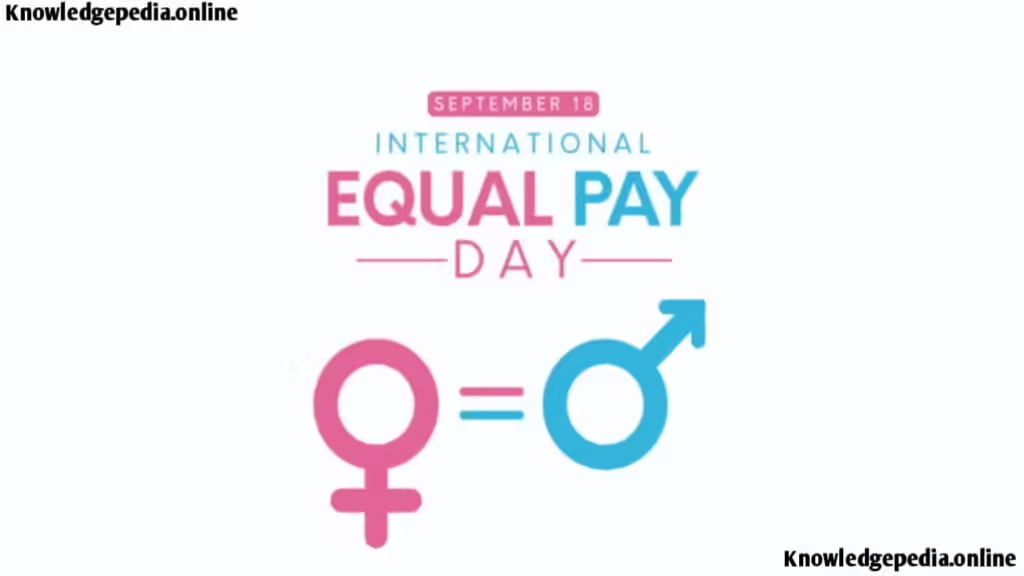Table of Contents
International Equal Pay Day 2024, observed annually, is a crucial moment to reflect on the progress made toward achieving gender pay equity and to highlight the ongoing disparities that persist globally. In 2024, this day not only provides an opportunity to assess the state of gender pay equality but also serves as a platform to advocate for more effective measures to bridge the gender pay gap.
Progress in Addressing the Gender Pay Gap
Numerous companies have adopted measures to address pay equity within their organizations. Some businesses have conducted pay audits, implemented pay transparency policies, and established equal pay committees to address disparities. High-profile companies like Salesforce and Google have made substantial investments in ensuring pay equity among their employees.
Public awareness of the gender pay gap has grown, leading to greater societal pressure on organizations and governments to address these disparities. Media coverage, advocacy campaigns, and grassroots movements have played a significant role in highlighting the issue.
There has been a push for more education and training programs focused on gender equality and diversity in the workplace. These programs aim to address unconscious bias and promote fair treatment of employees regardless of gender.
The Significance of International Equal Pay Day
International Equal Pay Day, recognized on September 18, is a day dedicated to raising awareness about the disparity in earnings between men and women. The day was established by the United Nations in 2020 to draw attention to the systemic issues that contribute to gender-based wage gaps. The date symbolizes how far into the year women must work to earn the same amount that men earned in the previous year. Essentially, if women are paid 82 cents for every dollar earned by men, then they must work until September 18 of the following year to catch up.
The day provides a benchmark to measure progress in closing the gender pay gap. By assessing the changes year over year, stakeholders can gauge the effectiveness of policies and initiatives aimed at promoting pay equity.
It brings attention to the gender pay gap and the broader issue of gender inequality in the workplace. It serves as a call to action for governments, organizations, and individuals to work towards eliminating these disparities.
Persistent Challenges
Unconscious bias in hiring, promotions, and pay decisions can lead to women being undervalued and underpaid compared to their male counterparts. Biases may affect performance evaluations, hiring practices, and opportunities for advancement.
Women and men often work in different occupations, with traditionally female-dominated fields such as nursing and teaching typically offering lower pay compared to male-dominated fields like engineering and finance. This occupational segregation contributes significantly to the gender pay gap.
Women are less likely to negotiate salaries and advocate for higher pay compared to men. Social norms and gender expectations can influence women’s negotiation behaviors, leading to lower starting salaries and slower salary growth over time.
The gender pay gap varies significantly across different countries and regions. In many developing countries, women face even greater disparities due to systemic issues such as lack of access to education, limited economic opportunities, and societal norms that restrict their participation in the workforce.
Steps Toward Achieving Pay Equity
Organizations should conduct regular pay audits to identify and address pay disparities. Increasing transparency around pay practices can help ensure that employees are aware of and can challenge any discrepancies in their compensation.
Training programs that address unconscious bias should be implemented in workplaces to ensure that hiring, promotion, and pay decisions are based on merit rather than gender. This includes developing fair performance evaluation processes and providing resources for managers to make unbiased decisions.
International organizations, governments, and NGOs should work together to share best practices and support initiatives aimed at closing the gender pay gap globally. Collaboration can help address systemic issues and promote gender equality in diverse contexts.
Organizations can provide training and support to help employees, particularly women, develop negotiation skills and advocate for fair pay. Creating a culture that values and rewards negotiation can help address disparities in starting salaries and career advancement.
Governments should strengthen and enforce laws that promote pay equity. This includes implementing pay transparency measures, strengthening equal pay regulations, and providing incentives for companies that demonstrate progress in closing the gender pay gap.
International Equal Pay Day 2024 serves as a critical reminder of the progress made and the work still needed to achieve gender pay equity. While significant strides have been made in addressing the gender pay gap, persistent challenges highlight the need for continued advocacy, policy changes, and organizational reforms.
- why Taliban say I love Hindustan - September 19, 2024
- International Day of Peace 2024 - September 18, 2024
- International Equal Pay Day 2024 - September 17, 2024

